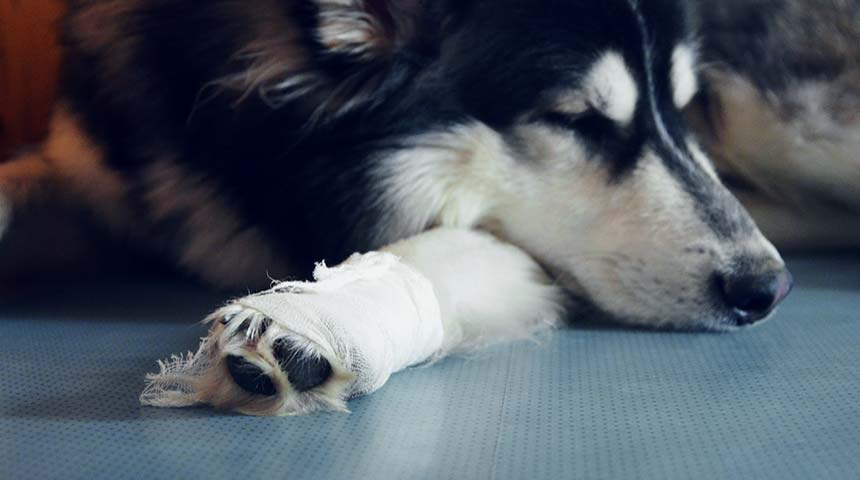
As with humans, your pets can sometimes hurt themselves taking walks or on outings in the woods. It is very important that you have a first-aid kit on hand because accidents can happen quickly. With a first-aid kit, you will be able to give basic treatment while waiting to consult a veterinarian.
It is quite easy to put a homemade kit together. You will need the following items:
- Elastic bandage: very useful to make a pressure bandage when there is bleeding or to immobilize a limb during transportation to a veterinary hospital.
- Sterile gauze: use gauze to disinfect minor wounds or to wipe injuries.
- Gauze bandage: it can be used as a bandage but also as a makeshift muzzle if the animal is aggressive.
- Hibitane disinfectant: to disinfect minor wounds; make sure your disinfectant has not expired.
- Bandage scissors.
- Fabric adhesive tape: to make a bandage.
- Gloves: to avoid spreading bacteria.
- Tongue depressor: very useful to make a splint when there is a possible fracture.
- Rectal thermometer: ideally in Celsius and Fahrenheit.
- Your veterinarian's phone number: it is very important that your veterinarian's phone number be in the kit.
In case of an accident or if your pet shows signs of discomfort, you must immediately contact a veterinarian. He/she will tell you what first-aid treatment can be administered until your visit.
You can very easily get all these items at the pharmacy. However, there are also kits available in pet shops. Make sure you have all the items. Some companies sell kits that are in the shape of a backpack for dogs; this way your pet can carry its own kit.
In closing, it is important to always walk your animal on a leash in order to avoid unfortunate accidents. When there is an injury or if your pet shows signs of discomfort, consult your veterinarian. For more information, contact an animal health technician or your veterinarian.

